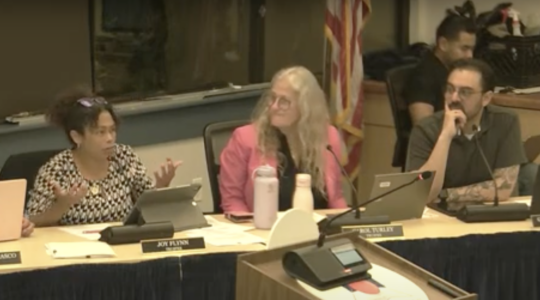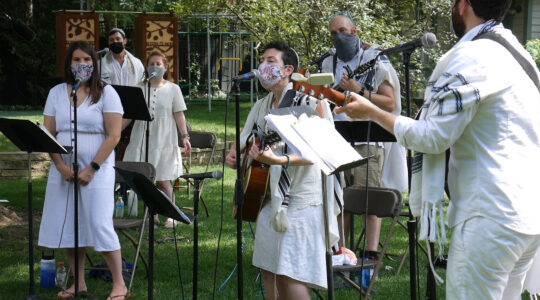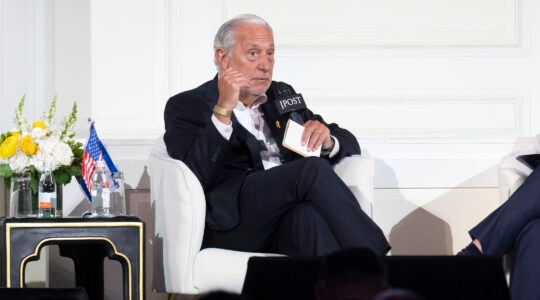NEW YORK (JTA) — A prominent Chabad rabbi is seeking to clarify remarks in which he renounced “Western morality” and seemed to call on Israel to massacre Palestinian civilians.
“The only way to fight a moral war is the Jewish way,” wrote Rabbi Manis Friedman in the current issue of Moment magazine. “Destroy their holy sites. Kill men, women and children (and cattle).”
Friedman’s comments were a response to the question “How Should Jews Treat Their Arab Neighbors?” The question was posed to rabbis of several denominations, and the Friedman response was identified as “Chabad.”
Subsequently he said that the comments were solely his own and not those of any movement or organization. A Chabad spokesperson also emphasized that Friedman was not speaking for the organization.
In a clarification issued through a Chabad spokesperson, Friedman, of St. Paul, Minn., said that he assumed it was “obvious” that the Torah requires peaceful non-Jewish neighbors to be treated “with respect and compassion.” Instead, Friedman said that he chose to address a different question: how Jews should act “in time of war, when our neighbors attack us, using their women, children and religious holy places as shields.”
Friedman said that he had been attempting to “briefly address some of the ethical issues related to forcing the military to withhold fire from certain people and places, at the unbearable cost of widespread bloodshed (on both sides!) — when one’s own family and nation is mercilessly targeted from those very people and places!”
Friedman added: “I apologize for any misunderstanding the words printed in my name created.”
Subsequent to the clarification, Chabad issued a statement that it “vehemently” disagreed with the notion “that Judaism allows for the wanton destruction of civilian life, even when at war.”
Interpreted as a call on Israel to carry out massive killings of Palestinians, bloggers seized on the Moment article, with several seeing it as a confirmation of what they view as Chabad’s extremism.
Shmarya Rosenberg, a perennial critic of Chabad, wrote on his blog, FailedMessiah.com, that he had heard this “exact logic” from Friedman himself.
Rabbi Avi Shafran, the director of public affairs for the fervently Orthodox group Agudath Israel, called Friedman’s comments “shocking and wrongheaded.”
“Divine commandments in the Torah that were intended for a particular time and place, as all the ‘war commandments’ were, are not properly applied to any other situations — and throughout history never have been,” Shafran said. “Torah speaks to contemporary situations only through the judgments of the greatest religious leaders of the day.”
A noted author, speaker and educator, Friedman is among the country’s most prominent Chabad rabbis. He has appeared on CNN, PBS and the BBC, and been the subject of articles in major national publications, according to his biography.
A 1974 New York Times article article about Friedman’s school, Bais Chana, described him as using “humble humor” in his interactions with young women who are returning to Jewish practice, many of them having dropped out of school or become hooked on drugs.
JTA has documented Jewish history in real-time for over a century. Keep our journalism strong by joining us in supporting independent, award-winning reporting.





